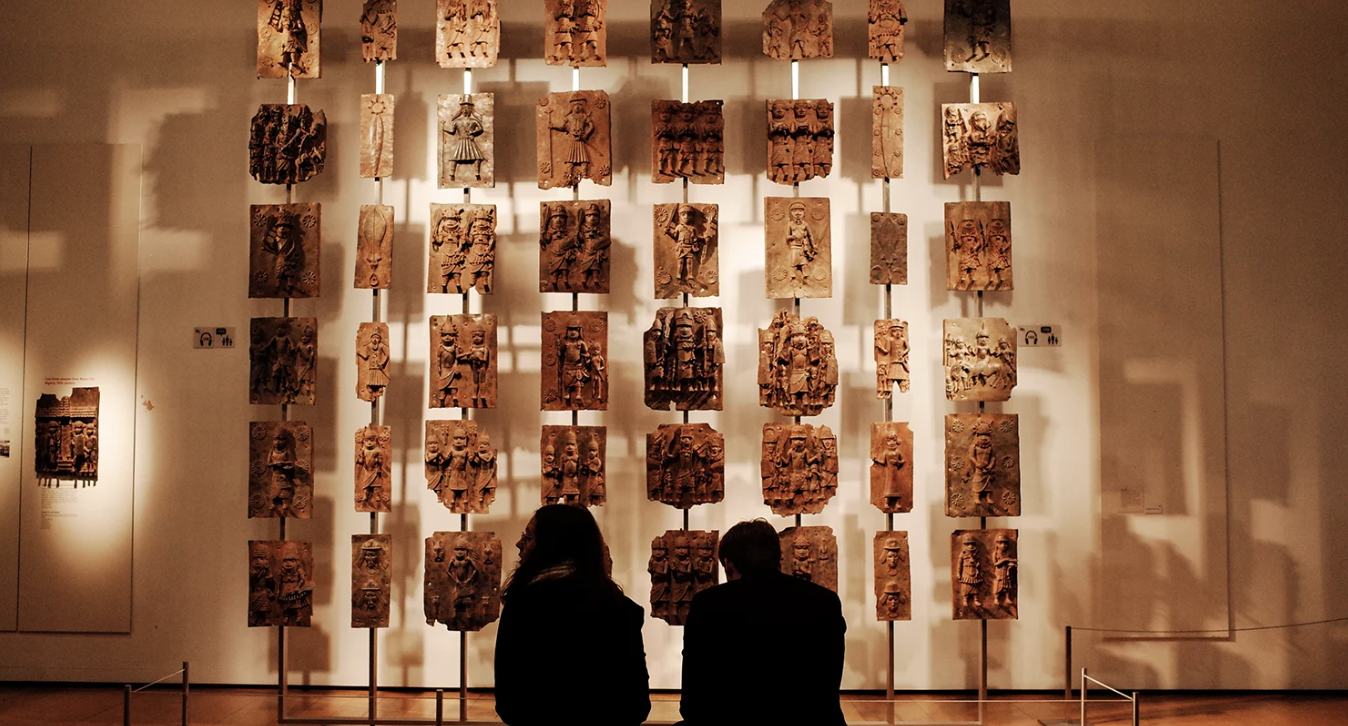In recent years, there have been passionate campaigns across the West for looted artefacts displayed in public museums to be repatriated to the lands of their origin. In what can be counted as a modest victory, the British Museum and the Victoria and Albert Museum have announced that they will loan to Ghana dozens of artefacts that originated in the Asante kingdom, including court regalia dubbed their “crown jewels”. This is becoming part of a trend, after Germany returned a number of the notorious Benin Bronzes to Nigeria in 2022.
Many arguments for repatriation contain romantic nationalist premises. Essentially, proponents argue that artefacts are the immutable expressions of a particular volksgeist which was ruptured by colonialism and hence must be restored. As one of Ghana’s cultural advisors is quoted as saying: “They’re not just objects, they have spiritual importance as well. They are part of the soul of the nation. It’s pieces of ourselves returning.” Behind this is the assumption that the treasures of the Asante kingdom mean more to an Asante or a Ghanaian than could possibly be the case for a white British person or an Arab.
What’s noteworthy is that the negotiations weren’t even with the Ghanaian government, but instead with the current Asante king to commemorate his silver jubilee. Likewise, the Benin Bronzes that have been returned were handed over to the current day Oba, or king of Benin, Ewuare II. The Nigerian government issued a decree last year that gave the Oba, and the Oba alone, exclusive rights over all repatriated bronzes as their “original owner”. The worry is that the same fate will befall the repatriated Asante artefacts.
The sad reality is that “decolonising” Western museums will likely mean repatriated artefacts are to be treated as the personal property of redundant African potentates, rather than the common property of the citizenry of these countries. Should this really be the fate of these cultural treasures?
It is certainly true that many of the treasures that currently lie in Western museums were initially seized through the looting and pillaging that came with European colonial expansion into Africa from the late 19th century onwards. Nevertheless, this was no morality tale between oppressor and victim. Both the Benin and Asante empires had slavery as part of their social order and were heavily engaged with European powers in the Atlantic slave trade. Indeed, slavery helped them garner the material and productive base to create their wonderful artworks.
These facts shouldn’t dampen our admiration of these artworks, nor erase the violent history of how they ended up in Western museums. But it does demonstrate the tragedy that is history and the moral quixotism of trying to make the past “right”, especially through the symbolism of cultural repatriation based on nationalist mythology.
Overall, we should ensure that the treasures of world culture are accessible to as many people as possible. This means defending the cosmopolitan, encyclopaedic museum that publicly displays the various treasures from different civilisations from across the world in relation to each other for the masses to see and admire.
Of course, this doesn’t mean they must be restricted to one country or exclusively to the West. Exchange programmes between different museums can be a solution for this problem. But to simply “return” these artefacts to the lands of origin would be to segregate world culture. The truth is that all these treasures were formed by human beings, and thus they truly belong to us all.











Join the discussion
Join like minded readers that support our journalism by becoming a paid subscriber
To join the discussion in the comments, become a paid subscriber.
Join like minded readers that support our journalism, read unlimited articles and enjoy other subscriber-only benefits.
Subscribe